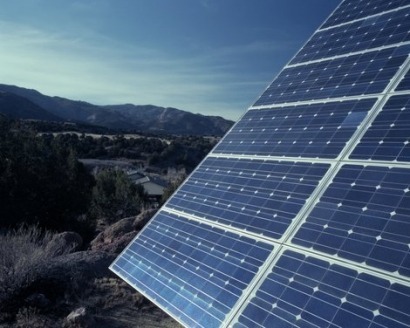
The demand for electricity in Indonesia is increasing rapidly due to the country’s enormous growth and rising prosperity. In response to this challenge, the University of Twente (UT), based at Enschede in The Netherlands, has been collaborating with the Indonesian Bandung Institute of Technology (ITB) and other organisations over the past two years in order to develop solar energy in the country. Cenderawasih University, the World Wildlife Fund and various local installers are supporting the project alongside UT and ITB and training courses in solar energy have also been established.
“Till three years ago, Indonesia had hardly any experience with solar energy systems that were connected to the grid” said UT Senior Lecturer Angele Reinders. “Due to the growing demand for capacity, the local electricity network suffers from many blackouts and noisy and polluting diesel generators dominate the street view.”
In remote areas of Papua, diesel was being flown in for generators. The local population sometimes used solar home systems, but these were mainly designed to supply electricity to only one household. Indonesia now pays a feed-in tariff of 25 to 30 dollar cents per generated kWh for generated solar power supplied to the grid. Such an amount makes it considerably more attractive to connect a PV system to the grid due to the fact that you can earn money after a payback period of about eight years as each kWh equals about 25 cents.
Angele Reinders is a senior lecturer from the department of Design, Production and Management (Faculty of Engineering Technology) at UT and an expert in the field of solar energy. She recently received 700,000 euros from the Netherlands Enterprise Agency to develop grid-connected PV systems in the country. This includes a pilot plant in Papua but with a focus on education, knowledge transfer, networking and research. This has resulted in a generation capacity of around 50,000 kWh of electricity per year, representing a saving of 5,000 litres of diesel and 11,000 kilos of coal per year.
“There is now a monitoring system for the PV system” Reinders added. “Using the solar energy system, the local town hall is now largely self-sufficient regarding its energy needs. At the ITB institute, ten professors are now working on solar energy and more Indonesian engineers are being trained.”
A number of these engineers are now following the double degree programme of the master's in Sustainable Energy Technology, which has been set up by Professor Theo van der Meer of UT’s Faculty of Engineering Technology. An Indonesian PhD candidate will also join the department of Design, Production and Management and focus on the stimulation of solar energy in Indonesia.
For additional information:

